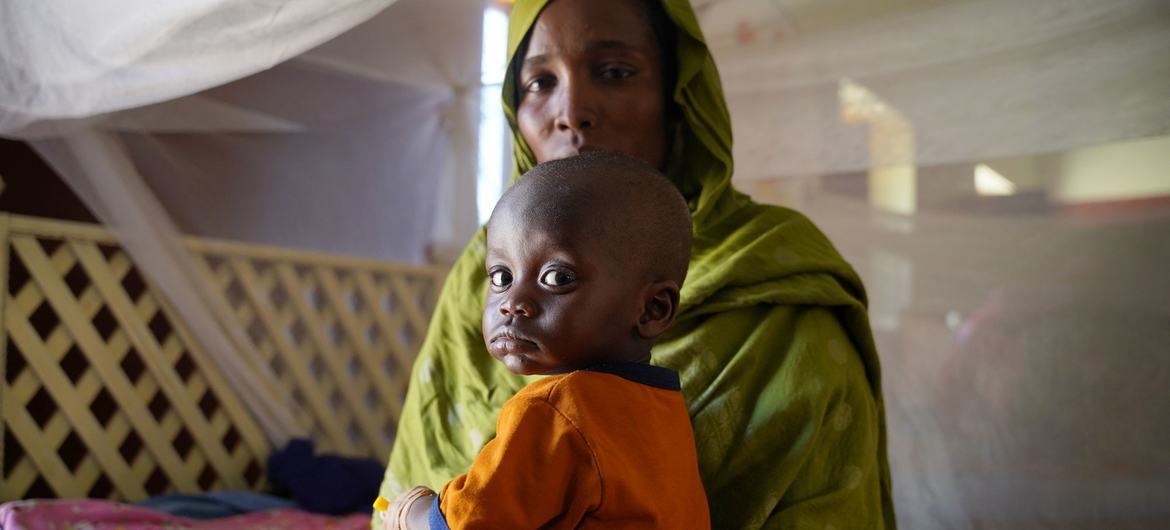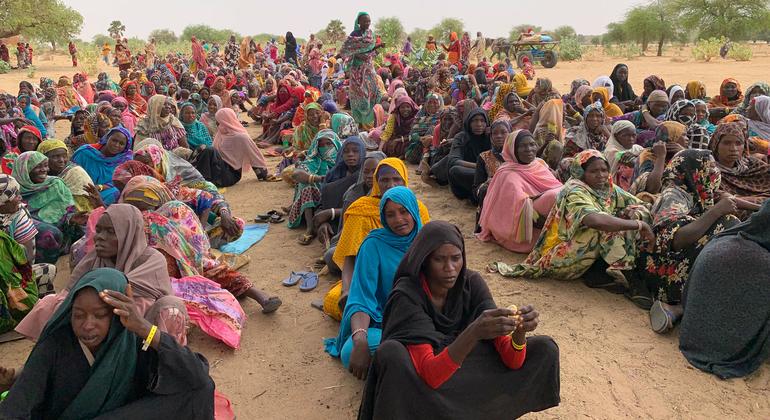Amid claims and counter claims, the army has been reportedly attempting to cut the supply lines of the Rapid Support Forces and defend its bases from continued attack. The RSF claimed to have captured hundreds of soldiers, following an attack on an army base.
Airstrikes and heavy fighting have left hundreds of thousands of city residents still trapped in their homes, while infrastructure and civilian areas continue to be pounded, according to eyewitness reports.
Aid reaching Khartoum
The UN Spokesperson, Stéphane Dujarric, told correspondents at the regular briefing in New York that the World Health Organization (WHO) had managed to deliver 30 tons of medical supplies to Al-Jazirah state, southeast of the capital, while trauma supplies to treat 2,400 people were delivered yesterday to five hospitals there, and three hospitals in the capital, Khartoum.
“WHO also supports the delivery of critical items to its partners and has additional supplies in the pipeline. Those will be released as soon as the security situation and logistics situation allow”, he said.
Meanwhile, aid organizations have managed to resume operations in parts of Darfur, he confirmed.
“For example, in North Darfur, the UN Children’s Fund (UNICEF) has helped deliver some 235,000 liters of clean water to eight healthcare facilities and one nutrition centre. UNICEF is also distributing water, sanitation and health supplies for nearly 15,700 patients at more than a dozen healthcare facilities”, the Spokesperson said.
And in Eastern Darfur, UNICEF has provided clean water to some 40,000 people in the Elneem camp for internally displaced people.
Shock waves spread
Shedding more light on the impact of the month-long crisis on the seven States bordering Sudan, Mr. Dujarric highlight that the UN team in Chad were reporting some 80,000 arrivals, including 60,000 refugees and 20,000 returning home.
Chad was already home to over one million forcibly displaced persons, including about 600,000 refugees, mainly from Sudan, the Central African Republic (CAR), Cameroon and Nigeria.
“So far, 3,000 refugee families have received non-food items from the UN Refugee Agency (UNHCR) and UNICEF. UNICEF has also installed water points and distributed water treatment material, ready-to-use therapeutic food, as well as essential medicines to health centres to ensure the treatment of children suffering from severe acute malnutrition.”
The UN emergency food aid agency, WFP, has distributed food and nutrition supplies to more than 20,000 new refugees in eight different locations along the eastern border, while the UN sexual and reproductive health agency UNFPA, is providing dignity kits and other supplies.
“Our team, led by Resident and Humanitarian Coordinator, Violet Kakyomya, is concerned about the imminent start of the rainy season, as thousands of people need transportation from border areas to other locations before roads become obstructed”, added Mr. Dujarric.

A mother brings her sick child to a UNICEF-supported health centre in Northern Darfur, during the ongoing conflict in Sudan.
Education Cannot Wait says funds desperately needed
The UN emergency fund for education, Education Cannot Wait, has announced a $3 million grant for children seeking safety from the Sudanese conflict in Chad.
“It is imperative to provide immediate access to education for children crossing to neighbouring countries to flee the brutal conflict in Sudan,” Education Cannot Wait’s Executive Director Yasmine Sherif said on Tuesday. “This safety net is crucial to address their needs now, protect them and safeguard their futures. How can we empower new generation if we keep them away from learning.”
The funding injection brings the UN fund’s total investments to support children’s education in Chad to more than $41 million.
With children representing almost 70 per cent of refugees in Chad, “education, protection and security needs grow as people keep arriving,” said Olga Sarrado, UN refugee agency (UNHCR) spokesperson.
Without access to safe and protective learning environments, uprooted girls and boys face a higher risk of child marriage, sexual violence, exploitation, hunger and recruitment by armed groups.



